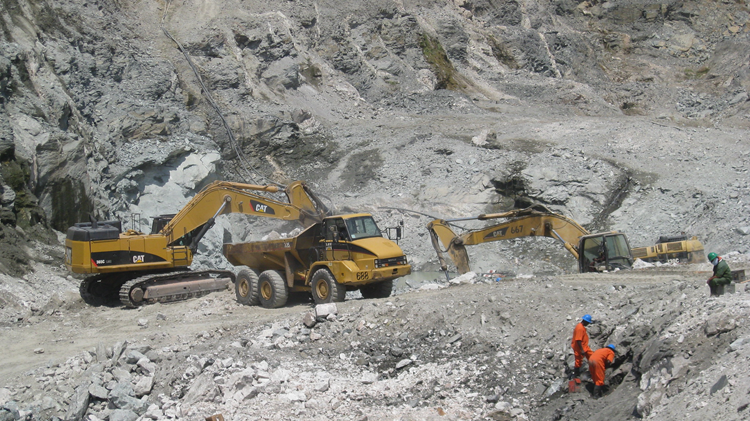Harnessing technology to improve Africa’s productivity and economic transformation

Better contemporary research is needed at the Africa-firm level and from a country-level policy perspective on the causality between technology and productivity.
There is a widely-shared assumption that innovation and technology lead to increased productivity. Fire. The wheel. The steam engine. The telephone. Computers. In modern economic literature, productivity is often a top indicator of long-term economic growth and transformation, with increases in productivity leading to sustained advances in standards of living and human wellbeing.
In most instances, changes in innovation and technology are the only attributable sources of permanent increases in productivity. Innovation and technology also impact sectors and themes such as health, education, disaster risk management, and inclusion.
Labour productivity in many African countries is low compared to the rest of the world despite improvement in technology upgrading. It seems that technology upgrading is weakly or not correlated with productivity across Africa. There are, however, some examples of the positive technology-productivity nexus. One of the most well-known examples is M-Pesa, the mobile payment service. In a recent in interview M-Pesa Africa’s Managing Director Sitoyo Lopokoiyit pointed to how this technology has impacted consumers and SMEs in numerous African countries. He pointed to a research study that in Kenya M-Pesa helped lift two percent of households out of poverty. M-Pesa now processes over a billion transactions each month across, resulting in an extraordinary savings of time and cost for in-person transactions and cash management. For SMEs M-Pesa estimates that every dollar that they charge in fees, a business makes an extra $5 in revenue due to productivity gains.
The Fourth Industrial Revolution (4IR) is in full swing with digital commerce, artificial intelligence (AI), nanocomputing, blockchain and other technologies changing the way the world works. With advances in technology globally, including in Africa, one would expect productivity increases to positively correlate with technology upgrades and overall economic transformation.
However, ongoing research at the African Center for Economic Transformation (ACET) shows this is not necessarily the case. Is this a paradox, a result of poor policy incentives, ineffectiveness of technology upgrading, or other factors? The answer likely lies in all of these. Other research shows that the relationship between science, technology and innovation, and increased productivity, are not linear with the sometimes significant time lag between technology upgrade and resulting productivity growth.
In modern economic literature, productivity is often a top indicator of long-term economic growth and transformation
That is, the impacts of improvements in technology on productivity growth are conditional on some domestic factors such as the absorptive capacity of ecosystem actors; or enabling conditions such as regulations or supply and demand factors.
In Africa, ACET’s ongoing research shows that countries such as Kenya, Ghana, Rwanda and Tanzania are near the bottom of positive change with regard to productivity (manufacturing value added per worker, agricultural value added per worker, and services value added per worker) even though those countries have strategies for technological upgrading. At the same time, countries making more progress regarding productivity often rank low on technology upgrading, such as Gabon and Algeria.
The reasons for this could be related to the structure of firms. For example, research from the Centre for Economic Policy Research argues that African manufacturing is split into two categories. That is, bigger companies that have better productivity indicators, but where job creation remains low; and smaller companies that provide many jobs, but don’t translate this to productivity growth. We don’t yet understand all the reasons behind these findings, but it may be that big companies experience difficulties with access to cross-border markets, and so don’t grow their businesses. Or it may be that higher levels of productivity do not lead to employment growth as existing employees reach a higher productivity threshold and the need for more jobs is not needed.
If domestic conditions such as labour skills are better in Algeria, technology will increase productivity more than in Ghana, where technology adoption is higher, but domestic conditions are poor (insufficient pool of skilled labour). Or it may be that small companies spend all their resources on new technology, but don’t invest in skills to use it.
This may apply both to basic digital skills, such as a farmer using weather data from a cell phone, and highly complex skills, such as using AI to anticipate and improve manufacturing equipment productivity through sensors. Regardless, stronger digital skills are vital for the processes of knowledge generation or innovation, and commercialisation of technological advances.
There is a widely shared assumption that innovation and technology lead to increased productivity
Of course, it is possible that too little data exists to properly understand the relationship between technology and productivity in Africa. Undercounting and understating the value of innovation and technology may equate to understating productivity improvements. At the same time, much technology development and uptake happens in the informal sector and among small and medium enterprises that are often not adequately captured in firm survey data.
ACET has begun work on investigating whether local firms’ links with multinational companies affect firms’ labour productivity and technological upgrading in Africa. This includes addressing equity partnerships, foreign technological licensing, and international supply links. At the same time, ACET is examining the differential impact of foreign investors originating from different countries on domestic firms’ labour productivity and upgrading.
To do this we are undertaking case studies in Ethiopia, Ghana and Kenya. Preliminary results show that firms in Africa linked to multinationals through supply links, equity partnerships, or technological licensing arrangements are more likely to upgrade technologies and stimulate labour productivity than their peers without such links.
Among these three forms of links with multinationals, technological licensing seems to matter more, and its effects stand out in magnitude relative to other forms of links with global firms. Such licensing agreements give local companies the rights to a technology for a fee or other compensation such as a percentage of revenues. Examples might include a global manufacturer licensing sensor data to a small manufacturer, or a global services firm licensing proprietary software to a local financial services company.
The disconnect between technology and productivity may also lie in the local conditions and lack of adequate infrastructure, which include limited digital backbones and connectivity, logistics bottlenecks, insecure land rights or power outages. It doesn’t matter how good technology is if there is no reliable and affordable electricity to use it. There may also be ‘soft infrastructure’ deficits.
There is much to learn from countries such as South Korea and China, but solutions require determined government action
In the 2015 Oxford Handbook of Africa and Economics, experts explored why ‘productivity enclaves’ of high productivity haven’t diffused more to smaller low-productivity firms and pointed to a poor business climate, political economy factors, and a lack of dialogue between industry and government. African researchers, policymakers and development practitioners need to urgently determine the root causes and impact of these disconnects between technology and productivity, and identify policy interventions that can help address them.
Meanwhile, 4IR technologies are being adopted quickly elsewhere. In a recent survey, EY and Microsoft found that in European factories, smart sensors and AI-enabled predictive maintenance is used by nearly 70% of firms. At the same time, over 35% of companies reported their use of AI to forecast demand, while more than 30% use AI to manage inventory. If firms in Africa cannot adopt such technologies and translate the technologies into higher productivity, the continent will fall further behind in the 4IR economy.
There is little rigorous contemporary research at the Africa firm level or from a country-level policy perspective on this causality between technology and productivity. Many reports refer to anecdotal evidence, while broader academic research points to contrasting perspectives and assumptions, particularly regarding large versus small economies, and between large and small firms.
Going forward there needs to be a greater focus on research to inform policies that help address the patterns of rising capital intensity, while developing methods and approaches to avoid undercounting manufacturing and industrial productivity. Currently data collection in most countries is based on legacy systems that focus on traditional manufacturing and industrial sectors and firms, and probably miss important data in the digital industrial sub-sector.
At the same time, access to finance is a challenge for firms across the continent with high borrowing costs. As capital intensity of technology increases, policies are needed to ensure access to financially sustainable funding. Governments must also invest quickly in human capacity for technology development and work with the private sector to target that investment. African governments must address gaps in the technology value chain and address negative externalities such as lack of electricity access or poor logistics.
Finally, in addition to attracting foreign direct investment, African regulators should encourage or require foreign firms to establish operational links with domestic firms to generate greater local productivity and economic transformation.
There is much to learn from countries such as South Korea and China, but solutions require determined government action, and such policies must not inadvertently de-incentivise investment. Often these operational links can be developed in export processing zones or industrial hubs where it is easier to achieve knowledge sharing.
The African Center for Economic Transformation is a Pan-African economic policy institute based in Accra, Ghana. ACET undertakes analysis and research related to Africa’s economic transformation and provides advisory services to African governments. Its innovation and digital policy practice has programmes on innovation ecosystems, strategies and frameworks, digital infrastructure and skills for the Fourth Industrial Revolution.








